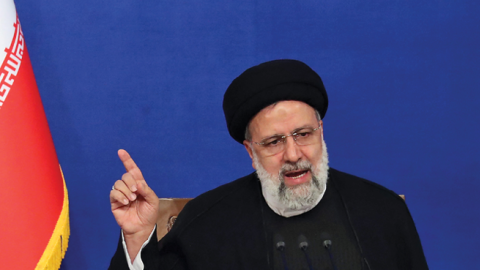Reports of an imminent return to the Iran nuclear deal have reached a fever pitch once again. Washington and Tehran are going back and forth over the European “final text” for reviving the Joint Comprehensive Plan of Action The Biden White House and State Department have launched an intensive round of news briefings to prepare the public for a forthcoming announcement.
Behind the intensity of the negotiations and speculation about their outcome is a disturbing but irrefutable truth: The nuclear deal does not solve the Iran nuclear problem. By pretending that it does, the Biden administration threatens to leave the United States with unappealing options: using force to destroy Iran’s nuclear facilities, driving Israel to do so, or living with a nuclear-armed Iran.
For the better part of a decade, analysts have debated the costs and benefits of the deal, with interminable finger-pointing characterizing the back-and-forth. Nevertheless, except for the most zealous JCPOA advocates, observers agree on several undisputable points.
Most significantly, they acknowledge that the deal’s primary restrictions on Iranian uranium enrichment are limited and temporary. By 2031, the JCPOA allows Iran to enrich and stockpile uranium without limitation, using advanced centrifuges in hardened underground facilities that Tehran previously hid from the International Atomic Energy Agency, in violation of Iran’s obligations under the Nuclear Non-Proliferation Treaty.
Deal supporters argue that restricting Iranian enrichment now is worthwhile, even though the JCPOA legitimizes unrestricted Iranian enrichment later and provides Tehran hundreds of billions of dollars in sanctions relief Deal opponents argue that the deal leads to a much richer, nuclear-armed Iran and has sparked a Middle East nuclear arms race, as Iran’s neighbors seek to secure for themselves the same capabilities the JCPOA grants the Islamic Republic.
Even deal proponents have noted that Iran’s JCPOA violations since 2019—in particular, high levels of enrichment, uranium stockpiling,increase%20of%20nearly%2010%20kilograms., and experimentation with uranium metallurgy—have no civilian justification. Deal critics agree and have pointed out that these violations—which are directly relevant to the production of nuclear weapons—would be permitted under the JCPOA in the coming years. The difference is only a matter of timing.
But seven years after the original conclusion of the nuclear deal, and as its provisions have begun to expire, the timing is now critical. Because the JCPOA does not provide a long-term solution to the Iranian nuclear problem, the United States needs a “Plan B,” whether or not it reenters the deal.
Officials in the Biden administration used to speak of negotiating a “longer, stronger deal,” implicitly acknowledging the JCPOA’s inherent flaws and the need for a backup plan. After nearly a year and a half of talks, Iran has made it clear that it has no desire to extend or expand the deal. Why would it? Returning to the JCPOA would remove economic and diplomatic pressure on the regime, thereby also removing the main incentives to make future concessions. Unsurprisingly, the Biden administration quietly abandoned talk of a longer, stronger deal months ago.
President Biden has asserted that US policy is to prevent Iran from ever acquiring nuclear weapons. If this is still the case, what is his plan to genuinely block Iran’s paths to nuclear weapons for the long term? With the relaxation of pressure, how does the administration intend to dissuade or deter Iran from its decades-long pursuit of nuclear weapons?
During Biden’s visit to Israel last month, a reporter asked if he would use force to prevent Iran from acquiring nuclear weapons. He answered that he would, if that was the last resort. Yet by returning to the JCPOA, the president is forcing himself down the path that he claims he wants to avoid.
If he discards economic and diplomatic pressure to rejoin an agreement that will unfetter Iran’s nuclear program in just a few short years, the use of force will be Biden’s only remaining option to stop Iran from going nuclear—the last resort. Instead, Biden should walk away from the deal. Doing so would allow him to develop a Plan B that uses the entire spectrum of coercive tools and possibly to avoid the use of force.
With or without the deal, Biden needs to prepare his Plan B. Failing to do so would almost certainly result in an Israel-Iran war, a nuclear Iran, or both. Biden claims that he wants none of these outcomes, but his policy choices suggest otherwise. Time is running out.














